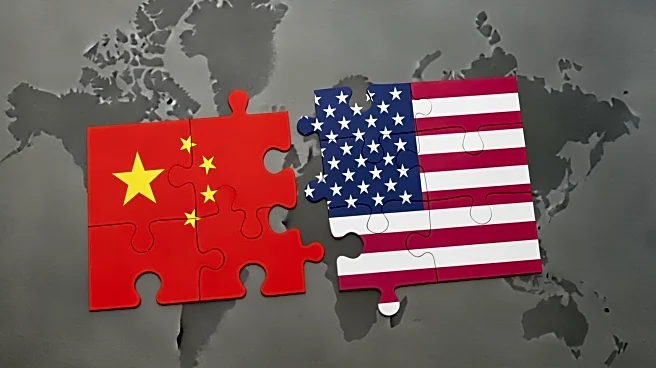What's Happening?
China has expressed opposition to the Trump administration's recent sanctions against Russia's major oil companies, Lukoil and Rosneft. These sanctions were imposed by the U.S. Treasury Department as part of
efforts to pressure Russia into ending its military actions in Ukraine. President Trump had suggested that China, as a significant purchaser of Russian oil, could influence Russia's decisions regarding the conflict. In response, Guo Jiakun, a spokesman for the Chinese foreign ministry, stated that dialogue and negotiation are preferable to coercion and pressure in resolving the Ukraine crisis.
Why It's Important?
The sanctions against Russian oil companies are part of broader U.S. efforts to isolate Russia economically and diplomatically due to its actions in Ukraine. China's opposition highlights the complexities of international relations, as China is a key strategic partner of Russia. The situation underscores the challenges in achieving a unified international stance against Russia's military actions. The sanctions could impact global oil markets and international diplomatic relations, particularly between the U.S., China, and Russia.
What's Next?
The ongoing conflict in Ukraine and the international response, including sanctions, are likely to continue influencing global political dynamics. The U.S. may seek further diplomatic engagement with China to address the situation, while China may continue advocating for negotiation over sanctions. The effectiveness of the sanctions in altering Russia's actions remains uncertain, and further developments in the Ukraine conflict could prompt additional international responses.











